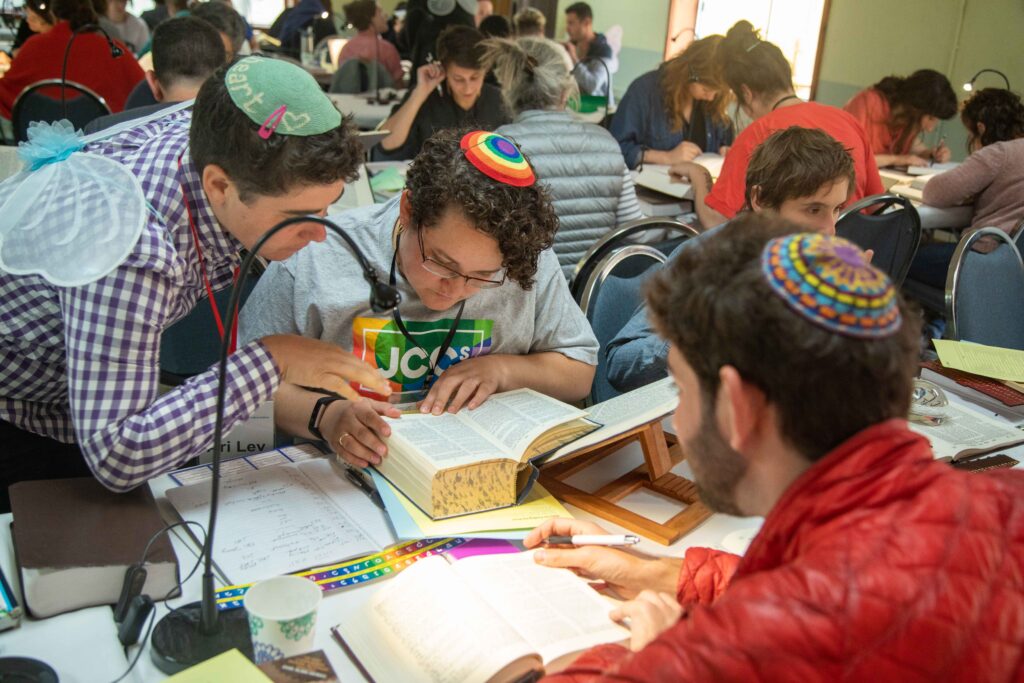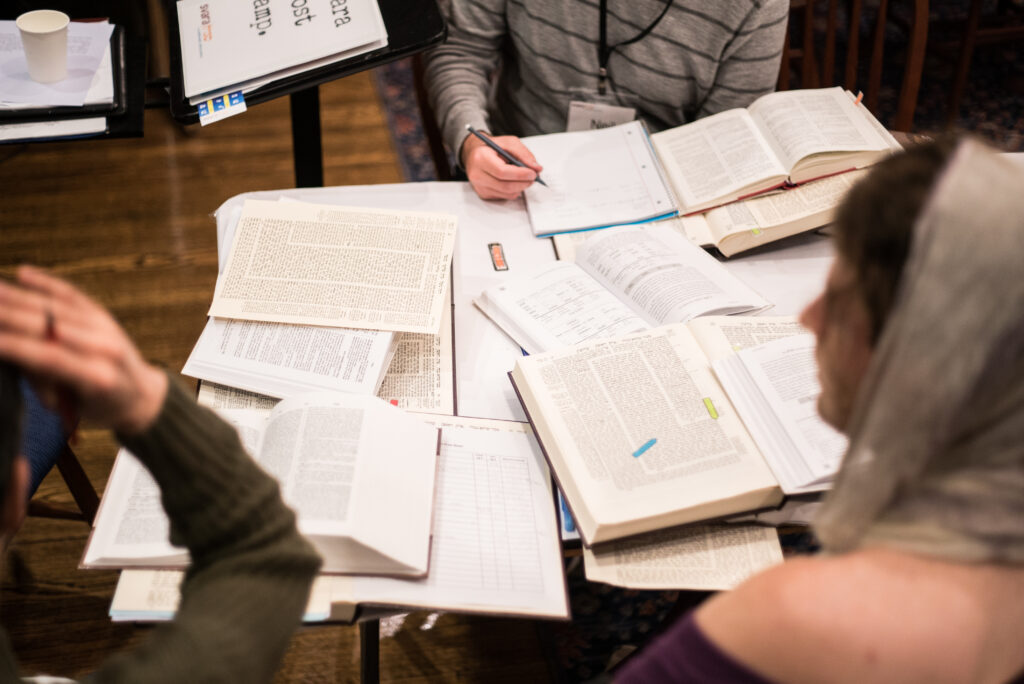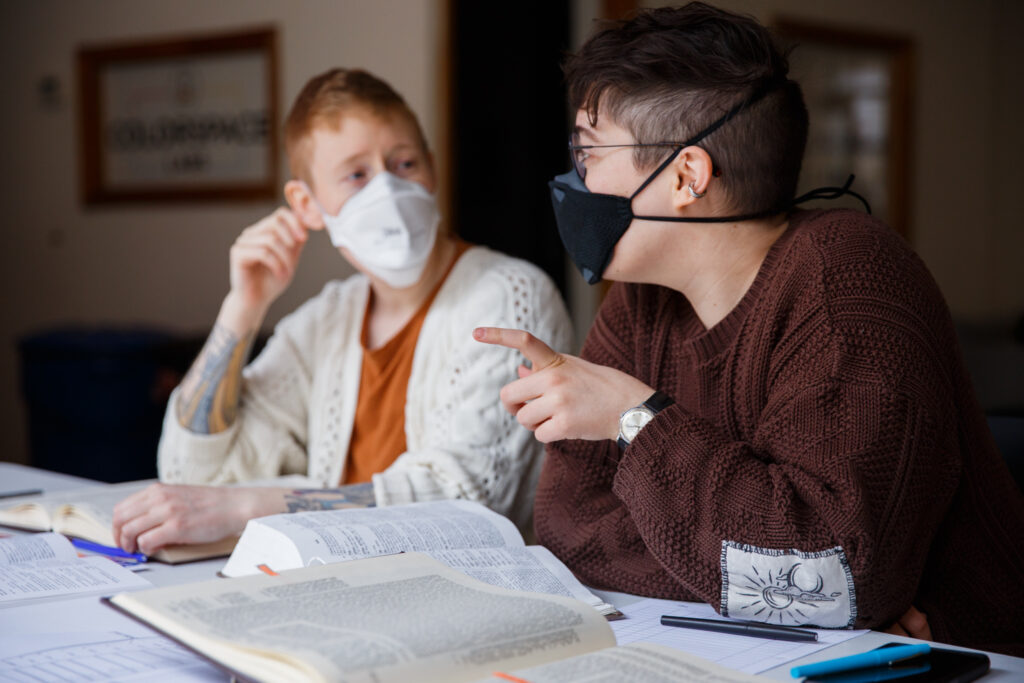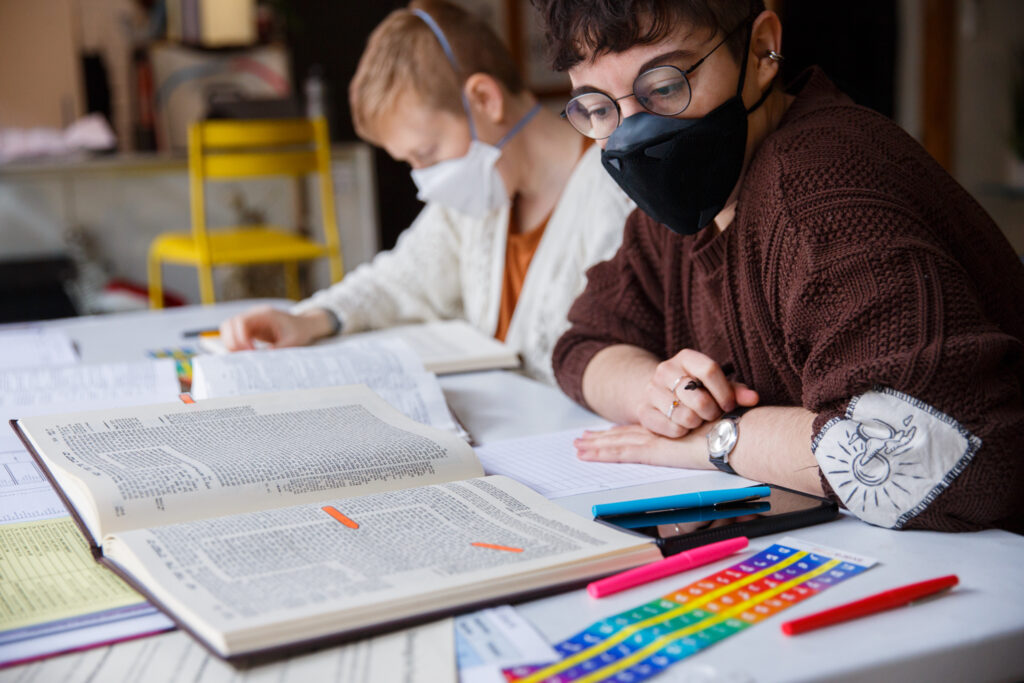About ten years ago, I asked a close friend of mine what she thought we would be like when we were older. “You’ll be exactly the same,” she said. “But you’ll have more tattoos, and you’ll probably be someone’s gay parent.” In a couple of short weeks—G*d willing—I’ll be heading out on leave from SVARA to become a parent for the first time. In the swirl of this final stretch, I find myself feverishly tending to both the logistical and emotional aspects of my impending departure. At any given moment, my mind seems to be hovering just above the rest of my body, spinning wildly with ephemeral thoughts as distinct as “don’t forget to share that Google doc,” and “how do you teach a child to read?” Lately, my mind is also spinning from the omnipresent feeling that life on earth is impossibly broken. I would be lying if I said I wasn’t frightened to picture a child arriving to a world that, even on the best days, feels utterly directionless.
Ever since I realized that building a family was something I wanted to try to do, I have received unbelievably encouraging support from the queer and trans folks in my life. Many of these people are also navigating the multidirectionality of what they might want and need from family-building at this moment on our planet, a moment which, in my experience, has felt both wildly empowering and deeply unmoored. One piece of insight that has stuck with me came from a pal here on Team SVARA, who shared an intention with me as they too prepared to welcome their own tiny bright being into the world: “I hope I can approach parenthood with a beginner’s mind,” they said.
In a society that demands us to be so precise in our actions, our assertions, our beliefs, and our associations, I find the idea of the beginner’s mind to be such a comfort. At SVARA, we understand the beginner’s mind to be a critical resource we all posses, particularly when we are doing something for the first time. It shows up most explicitly in one of our longstanding offerings, Queer Talmud for Beginner’s Mind, but the origin of the idea can be found across time, space, and spiritual traditions. Our founder and Rosh Yeshiva Rabbi Benay Lappe has shared this framing in many different ways over the years, and I find it beautiful to see how her teaching has helped the idea of the beginner’s mind reach other Jewish learning spaces. For example, our friends at the Jewish Studio Project offered a gorgeous take on this concept as an Elul prompt not long ago:
Often read as “in the beginning” or “as God began,” we might also understand בראשית “beresheit” as “with beginner’s mind.” The first words of the Torah could then be read as: “With a beginner’s mind God created the world” (this interpretation was first shared with Rabbi Adina Allen by the founder and Rosh Yeshiva of SVARA, Rabbi Benay Lappe). To approach something with a beginner’s mind is to revisit something we consider “known” (to us) and set our expectations and preconceived ideas aside in order to rediscover it, just like a beginner. Just as God starts from beginner’s mind to form the world anew, so too can we— humans made in the Divine image— embrace this mindset of openness and curiosity as we seek to renew ourselves, our relationships, and our society.
In the SVARA bet midrash, we welcome the beginner’s mind as a means of keeping our tradition alive, ever-changing, and fully awake to both the lightness and the darkness of the world it lives within. We do this by inviting every single learner to celebrate and center their questions, their doubts, and the things they aren’t quite sure about. Why? Because at SVARA, we have a hunch that if our queer rabbinic ancestors hadn’t done exactly that, there’s no telling where Judaism would be (or if it would be at all). At SVARA, we hold the Talmud as a particularly compelling piece of evidence that demonstrates how powerful it is to not know what comes next. In the Talmud, particularly as it is encountered at SVARA, we see that a collectively held commitment to openness, discourse, curiosity, and vulnerability makes a spiritual tradition worth inhabiting.
As both a learner and a laborer at SVARA, I find our celebration of the beginner’s mind to be present in so much of what we do, but it had never occurred to me to apply such a framework to becoming a parent. It makes perfect sense, though. For queer and trans folks, the gatekeeping around parenthood is relentless. The absence of support can feel insurmountable. The fear of doing it wrong can push even the most determined person to question why they ever considered it in the first place. I think these same exact things can be said about studying Talmud, and about trusting the tradition enough to hand ourselves over to it. Thanks to the folks I work and learn with, I know that honoring my beginner’s mind —regardless of the context —can help make it all feel not just possible, but beautiful.
In the time since I’ve been pregnant, a lot has happened in the world and at SVARA. We spent most of last year reflecting on our 20th anniversary. This year, we’ve shifted our gaze toward the unrecognizable Jewish future, wading through the uncountable possibilities of where we might go next. In the spirit of those possibilities, SVARA is getting ready to release a brand new strategic plan to guide the growth of our yeshiva and our commitment to the many beginner’s minds that learn with us each and every day. This plan, “Manifesting the Jewish Future,” came into being thanks to insight from our staff, faculty, fellows, learners, partners, and supporters who believe our tradition deserves to keep changing in response to our questions, our uncertainties, and the things we aren’t quite sure about. As we head towards an official launch of this collaboratively constructed future-facing roadmap, I am holding so much hope that this next phase of growth at SVARA will catalyze a new era of access to and accountability for our spiritual tradition. As found in the plan’s introduction:
SVARA’s aim is to activate individuals in bringing a liberatory understanding of Jewish tradition to bear on society today. Our learning model enables anyone—including those who have never studied Jewish text before—to access the tradition for themselves, translating texts, ideas, and core Jewish frameworks that uplift Judaism’s commitment to change as not only inevitable, but critical to building a more healed world.
May we find ourselves—as well as our children, our communities, our projects, our chevrutas, our teachers, and our learners—inhabiting a more healed world. One where living, growing, and learning feels not just possible, but beautiful.







